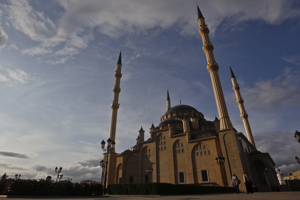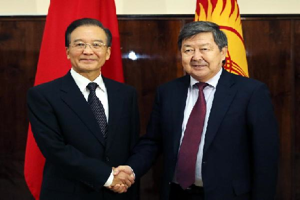CACI Analyst, May 01, 2013
Russia's Izvestia Blames Georgia Of Supporting Terrorists
by Eka Janashia (05/01/2013 issue of the CACI Analyst)
Georgian authorities rejected an accusation dispersed on April 24 by the Russian media outlet Izvestia about alleged linkages between Georgian intelligence services and the Boston Marathon bombing.
CACI Analyst, April 17, 2013
Chechnya and Russian Federal Center Clash Over Subsidies
by Tomáš Šmíd (04/17/2013 issue of the CACI Analyst)
The Accounts Chamber of the Russian Federation recently issued a press release with information on the budget implementation audit of the Chechen Republic. The audit has revealed errors and violations amounting to 7.9 billion rubles (ca. US$ 252 million). While it has not yet been stated whether the violations will be classified as crimes, the Chechen leadership will have to explain how they handle the federal budget funds. To make things more complicated, the question emerges at a time when debates at the federal level increasingly question whether federal subsidies for Chechnya should be retained.

Kyrgyzstan Between China And Russia
by Dmitry Shlapentokh (04/17/2013 issue of the CACI Analyst)
China’s new President Xi Jinping has underlined the crucial importance of China’s relationship with Russia and proclaimed that Russia would be his first foreign destination. Yet, despite mutual assurances and common interests in some areas, China and Russia also increasingly compete in Central Asia, not least in their approaches to Kyrgyzstan. In 2012, Kyrgyz authorities signed several agreements with both Russia and China. Agreements with Russia primarily stress military strategic matters, while those with China emphasize economic ties that, barring major conflict in the area, will be more important than military help for Kyrgyzstan. Hence China, not the U.S. or Turkey, is emerging as Russia’s major competitor for influence in Kyrgyzstan.









 Book S. Frederick Starr and Svante E. Cornell,
Book S. Frederick Starr and Svante E. Cornell,